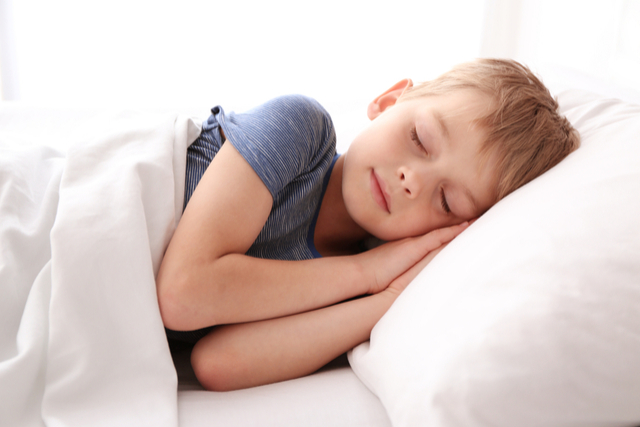Bedwetting is when kids who are old enough to control their bladder pee at night during sleep. It's a common problem in children under 6 years old.
Why does bedwetting happen?
To date, medical experts do not know what exactly causes bedwetting or why it stops. But it is often regarded as a natural part of development, and children usually grow out of it. Most of the time, bedwetting is not a sign of any deeper underlying medical or psychological issues.
Bedwetting often runs in families: many kids who wet the bed have a relative who did too. If both parents wet the bed when they were young, it's very likely that their child will.
According to a pediatrician and author of Waking Up Dry: A Guide to Help Children Overcome Bedwetting. About 75% of the bedwetting can attribute to the hereditary cause.
Other causes of bedwetting include:
- Inability to wake up to void urine. Bedwetters are known to be deep sleepers. Some of these children sleep so deeply, their brain doesn't get the signal that their bladder is full.
- Delayed bladder maturation. Bedwetting tends to improve with time and the majority of sufferers will ultimately become dry. For kids, it takes longer for their bladder to communicate with the brain.
- Lack of the production of a naturally occurring body hormone called Anti-Diuretic Hormone (ADH) during sleep in 20-30% of children with bedwetting. This hormone tells the kidneys to make less urine. Studies show that some kids who wet the bed release less of this hormone while asleep. More urine can mean more bedwetting.
- If a child has a lot of stool in his or her rectum, it may push against the bladder. This can "confuse" the nerve signals, causing the bladder to believe it is fuller than it might be. A full rectum may also reduce how much urine the bladder can hold and how well the bladder empties when a child urinates. Parents are often surprised that by treating constipation, bedwetting is sometimes reduced or even cured.
Measures that can be taken
First and foremost, parents should be aware that no child wets the bed on purpose, or they wet the bed because they are too lazy to get up to pee. Blaming your child for bedwetting will only make the situation worse.
Some measures that can be taken to combat wetting
- Remind children that bedwetting is no one's fault.
- Encouraging a child to pee before bedtime.
- Restricting a child's fluid intake before bed.
- Covering the mattress with plastic.
- Bed-wetting alarms. These alarms sense urine and wake a child so they can use the toilet.
- Bladder-stretching exercises that may increase how much urine the bladder can hold.
- Do not punish or shame children for being wet at night, and make sure the child's siblings do not tease him about wetting the bed.
Medical Treatment
KKH women's and children's hospital recommends parents to seek medical professional's help when the affected child is already at school-going age and the wetting is frequent.
Although bedwetting is unlikely caused by underlying kidney or bladder problem, it can cause anxiety and affect the psychosocial development of the children.
Bedwetting alarm (all alarms work on the premise of waking a child if the wetness sensor detects urine) and Desmopressin (This helps the kidneys produce less urine) are commonly used to treat bedwetting.
